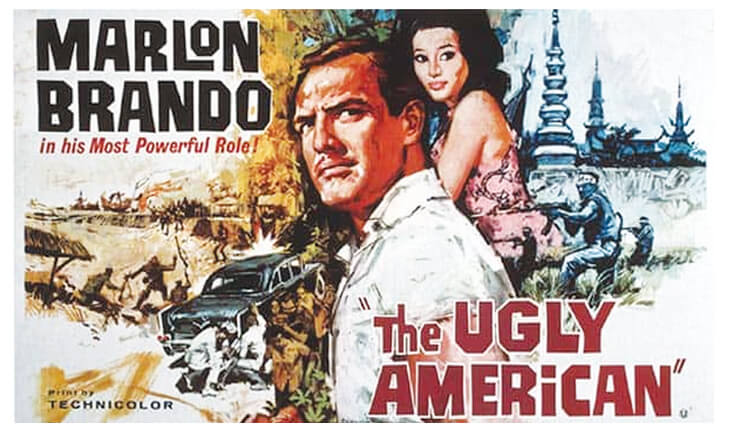Facebook brings memory of ‘The Ugly American’
FB ‘conspires’ with Rappler, Reds in taking down pro-democracy pages
THE recent decision by social media giant, ‘Facebook’ (FB) to take down pages promoting pro-government, pro-democracy and pro-China views, in cahoots with online news site, ‘Rappler’ and pro-Communist Party of the Philippines (CPP) ‘civil organizations,’ is not only generating outrage in the Philippines but also, brought back memories of the stupid arrogance of US Imperialism that resulted to its disaster in Southeast Asia as captured in the 1958 novel, the ‘Ugly American.’
Nathaniel Gleicher, head of Facebook’s security/cybersecurity policy, announced last September 22, 2020, that they “removed 155 accounts, 11 pages, 9 groups and 6 Instagram accounts” for purportedly violating its policy “against foreign or government interference.”
Gleicher described the violation as “coordinate inappropriate behavior (CIB) on behalf of a foreign or government entity.”
The censored accounts allegedly originated from mainland China but “targeted” the Philippines and the rest of Southeast Asia and the United States for their audience.
Gleicher further announced that the pages they took down affected some 133,000 accounts and some 61,000 people who are members of the censored groups.
On the other hand, 57 FB accounts, 31 pages and 20 Instagram accounts in the Philippines were also taken down that affected another 276,000 accounts; 5,500 other accounts were also affected by the removed Instagram accounts.
Rappler, a Philippine-based online news outlet convicted by the Securities and Exchange Commission (SEC) in 2018 for glaring violation of the country’s constitutional ban on foreign ownership of any Philippine media outlet, gloated on FB’s mass censorship as it immediately identified itself as behind the decision to violate the constitutional guarantee to free speech and free expression.
For reasons still unclear, Rappler is among FB’s local “factchecker,” along with ‘Verafiles.’
Like Rappler, Verafiles, being operated by journalist Ellen Tordesillas, is also a recipient of foreign funding support.
Rappler mainly draws its money from ‘Omidyar’ a company notorious for participating in ‘regime change’ and identified with George Soros while Verafiles is getting funding from a known front of the Central Intelligence Agency (CIA), the National Endowment for Democracy (NED).
Rappler, whose chief executive officer, Maria Ressa, was also convicted for criminal libel by a Manila court and is also being sued for tax evasion, gloated that it was behind the “investigation” of the accounts taken down by FB, especially those with alleged links to the Armed Forces of the Philippines and the Philippine National Police.

Gleicher never hide his being a rabid supporter of Ressa, who, in turn, is the main propagandist of the Liberal Party (LP) and Western Imperialism’s interests in the country.
In a Twitter post after Ressa was convicted for criminal libel last June 15, 2020, Gleicher described it as a “dark, dark day for press freedom,” thereby betraying his bias for Ressa and her destructive brand of journalism.
Gleicher, in his September 22 post, also admitted that among the reasons they took down the PH-based accounts is the “criticisms” thrown against Rappler and the local communist movement.
Karapatan, a self-styled “human rights” organization with close link to the CPP, also announced it had requested FB to take down accounts for ‘red-tagging.’
The result is the taking down of the ‘Hands Off Our Children’ (HOOC) page (see related story in this issue).
AFP, NPC sought meeting with FB
Because of the public outcry over FB’s underhandedness, the National Privacy Commission (NPC) and the Armed Forces of the Philippines (AFP) had sought a meeting with FB Philippines for clarification.
B/Gen. Ernesto ‘Jun’ Torres, chief of the AFP’s Civil Relations Service (AFP-CRS), described their ‘virtual’ meeting with FBPH last September 22, 2020, as “cordial.”
“(The meeting) started with them briefing us about FB Phils: organization; policies; engagements and programs in partnership with govt agencies and NGOs,” Torres said.
The FB team was headed by Clare Amador, FBPH’s head of public policy.
Although cordial, some government sources are taking FB’s cordiality with a ton of salt.
They noted that Amador, like Gleicher, is a known LP/Aquino partisan, having served as undersecretary at the Department of Budget and Management (DBM) under the Noynoy Aquino administration.
NPC Commissioner Raymundo Liboro, in a report by the Philippine News Agency (PNA) last September 24, 2020, said they would also conduct a “deeper probe” into FB’s decision.
Liboro said an invitation was sent to Facebook to appear before the NPC as part of its investigation; the commission would also ask the company to comply with the country’s “laws, rules, and regulations”.
“It is incumbent on us at the National Privacy Commission to step up our action especially on platforms, like Facebook that is considered as one of the biggest holders and processors of personal data,” Liboro said.
The ‘Ugly American’ is a political novel published in 1958, at the height of the ‘Cold War’ between the Soviet Union and the United States and was authored by William Lederer and Eugene Burdick.
It was immediately a best-seller and sold 4 million copies. It was made into a film in 1963, starring Marlon Brando.
The novel was an indictment of the US’ diplomatic attitude anchored on inherent arrogance towards other peoples, especially in Southeast Asia where US diplomats never bothered to learn the local language and culture but are very eager to impose their own views on others.
This is very much the attitude being displayed here by Gleicher and his fellow ‘Ugly Americans’ at Facebook.
US President Dwight Eisenhower and John F. Kennedy were among those influenced by the book, with Eisenhower ordering a review of US diplomatic policies after reading it and Kennedy sending a copy to all his fellow members at the US Senate.
The book was also said be influential in the formation of the US Peace Corps, that, for the first time, encouraged its volunteers to “listen” to, and address the actual needs, of their local target beneficiaries.



